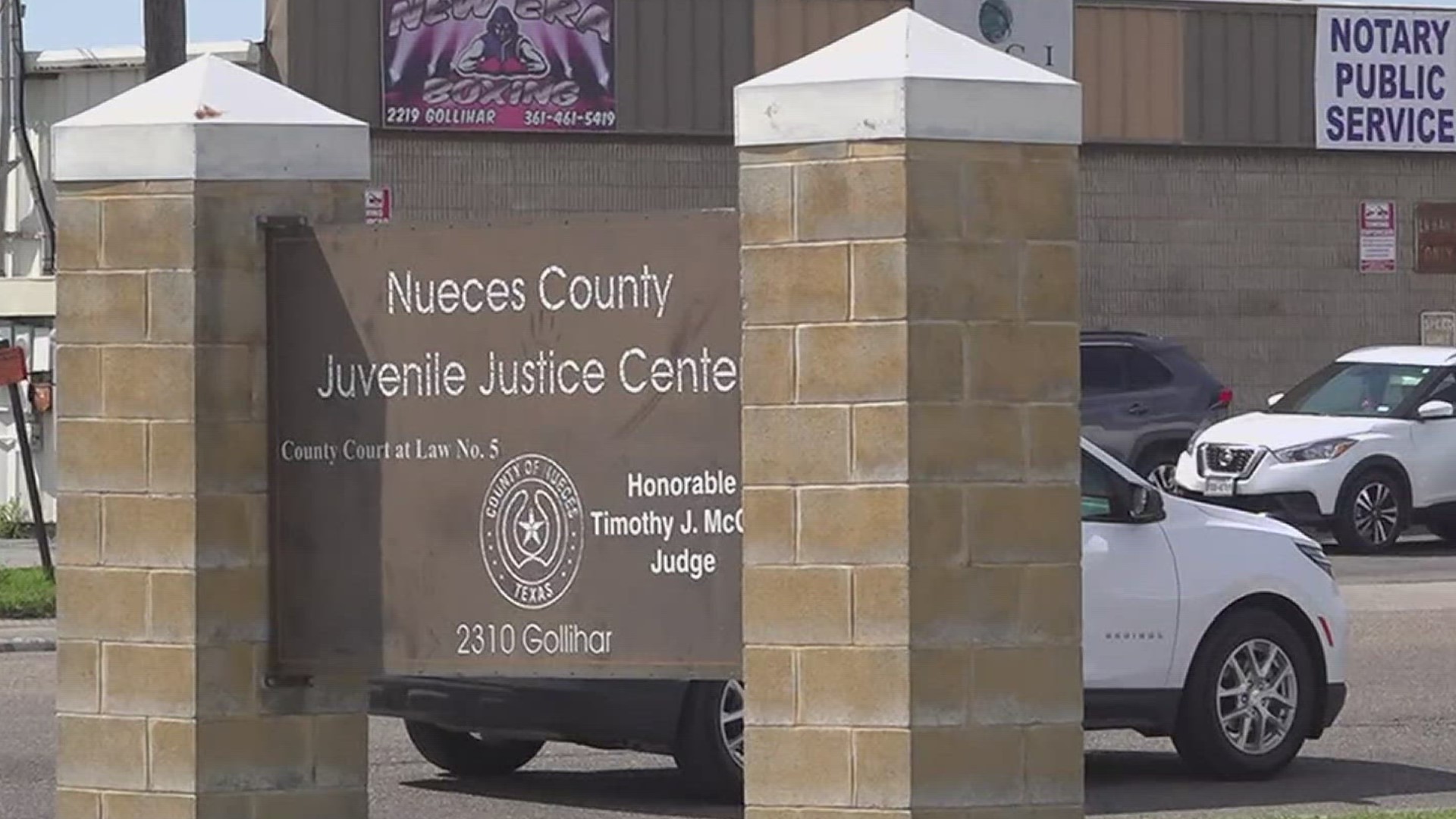CORPUS CHRISTI, Texas — The 16-year-old suspect wanted in the shooting that killed Ray High School student Andrew Lee Garza Jr. remains in the Nueces County Juvenile Detention Center Monday night.
The teen, who has not been identified because he's a minor, turned himself into police over the weekend.
He's accused of shooting Garza at a home on Monitor Street earlier this month. Because of his age, the court system works differently.
Juvenile offenders are required to appear before a judge at a detention hearing where they're given a chance to be released depending on conditions of their crime.
Due to the nature of this crime the teen was not given that chance and will remain in custody.
The case has some wondering; what happens to juveniles when they enter the court system charged with a crime as serious as murder?
In 2023, nearly 1,500 cases involving minors referred to the Nueces County Juvenile Detention Center with crimes ranging from drug possession to murder.
"It appears that in the last couple of years the offenses have gotten more serious, particularly gun play," Deputy Director of Special Programs at the Nueces County Probation Department John Milam said.
The deputy director said the offenders behind these serious and violent crimes are getting younger.
But what defines a juvenile? According to Milam, their department handles any minor between the ages of 10 and 17 who commits a Class B misdemeanor and above.
"Before their 17th birthday if they commit a crime, anything in the penal code that you or I could commit as an adult, if a juvenile commits it during that age range they are referred to our department," he said.
As far as severity of the crime Milam said there has been an increase in car thefts and even first-degree felonies.
"Usually on average there's no more than one per year regarding a child charged with homicide but last year there was four and I believe we have had one this year as well," Milam said.
According to Assistant District Attorney Kristi Britt, who presides over these cases, juveniles get the same due process as an adult would but they are also unique.
"It works a little different in the adult system in that you have a bond," Britt said. "You can make a bond or you can't make a bond or your attorney can request the court reduce the bond. We don't have anything in the adult system like the juvenile system that they have to be brought before the court to see the juvenile judge to see if they will be released."
Milam said there are instances where a child can be certified to stand trial as an adult and that can happen as early as 14 depending on the severity of their crime, such as murder.
"At that time, our court would review all the assessments, psychological exam, thorough examination of their home life, educational history," Milam said. "Do they have the maturity level of an adult? Those are the factors that the court can take into consideration in determining whether the child says in the juvie system or is transferred to the adult system."
More from 3News on KIIITV.com:
- Teen murder suspect from Monitor St. shooting turns self in
- Hundreds of stash houses discovered since 'Operation Lone Star' began in 2021
- Rodeo Corpus Christi concert lineup looks like Nothin' But A Good Time
- Experts weigh in on warning signs to look out for when it comes to online predators
- US Marshals arrest man who fled scene at reported Thursday night burglary
- Former Coastal Bend priest ordered to pay victim $4 million as civil suit wraps Friday
- Boat washes up south of Bob Hall Pier, after investigation, gets new home
- Families, Medical Examiner's office enter mediation for botch autopsies accusations
Subscribe to our YouTube channel for your daily news and exclusive extended interviews.
Do you have a news tip? Tell 3!
Email tell3@kiiitv.com so we can get in touch with you about your story should we have questions or need more information. We realize some stories are sensitive in nature. Let us know if you'd like to remain anonymous.

